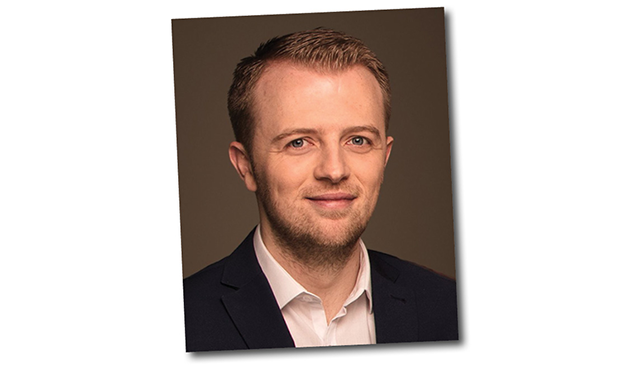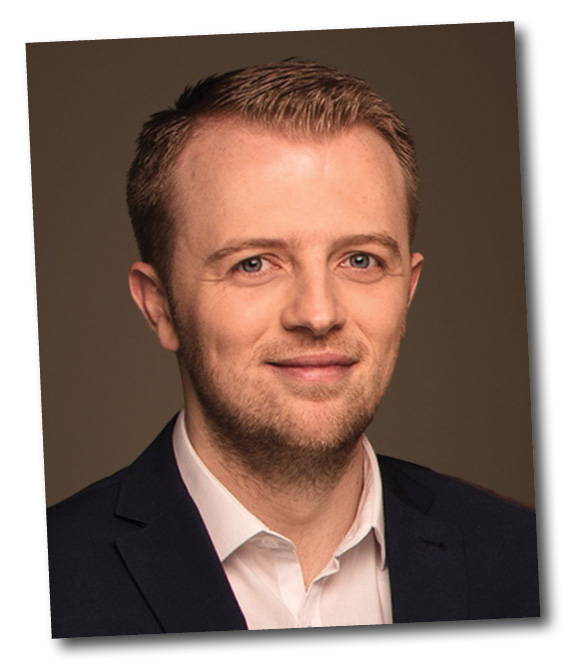Meet the Media


Upon graduating from UCD (where he was the Deputy Editor of the University Observer), Gavan Reilly spent three years with the TheJournal.ie. Recently he left Today FM after a four-year stint to take up a position as TV3’s political correspondent.
How did you get into journalism?
By accident, really! I started out writing for The University Observer in UCD volunteering to do album reviews, solely because I thought it would be a handy way of getting hold of free CDs! But the year I spent there really harnessed a grá for writing and appreciation for the written word. Around the same time, I ran for class rep and ended up getting involved in the Students’ Union, and became more politically aware and awakened through that too.
Eventually the two conflated and I started to write news-ier pieces for the paper in UCD, and in 2009 I became its full-time Deputy Editor. From there I was headhunted for an experimental start-up called TheJournal.ie and it all spiralled from there! I was there for three wonderful years, with Today FM for four and have now taken up my new role with TV3.
How do you think the profession is evolving?
It sounds like stating the obvious but it is no longer good enough to be a master of one medium. Work is so thin on the ground that it’s not really tenable to aspire to be a good writer and expect to get by with that alone. It’s now more important to be a jack of all trades – to be adept at writing, audio recording and production, shooting video and taking photos, and to be a single-person multi-format storyteller. Likewise, resources are thin on the ground too and the more skills that a single person can bring to the table, the more likely they are to become a valued part of a team and to remain that way.
Aside from the professional difficulties, the speed of the news cycle is now frightening. There was a time when what was said in the Dáil chamber during Leaders’ Questions at 10:30am one morning could still justifiably lead a newspaper front page the next day. These days Leaders’ Questions takes place at noon and might already be stale by teatime. During one day in the thickest part of the Maurice McCabe/Tusla controversy, the story seemed to twist and turn within hours – where the Government went from teetering on the rocks, to being steady and sound, to teetering again within the space of 30 hours. It can make for exhausting work and it’s not an easy thing for thinly-staffed newsrooms to cope with.
What is unique about working on a radio platform?
One of the things that I didn’t really appreciate before I moved over to radio – especially having previously worked online, where space is infinite – is that with radio you have to be a bit more discerning about what deserves your airtime. The web, and written forms in general, really lend themselves to background, ‘behind the headlines’ pieces, and to more analytical pieces where you dissect trends and determine what’s subtly going on behind the scenes. With radio, you have to fight a little harder for the listener’s attention and in reality, every story has to be the equivalent of a newspaper’s front page splash and other stories don’t work quite so well.
You should also be mindful that many of your listeners during primetime hours – 7am to 7pm – are tuned in throughout the day, and cannot be expected to make do with the same news or the same piece of audio, hour after hour after hour. That means sometimes you need to approach stories from a different direction so that you can give them longer shelf-lives and have them last for longer than a couple of hours.
“Work is so thin on the ground that it’s not really tenable to aspire to be a good writer and expect to get by with that alone. It’s now more important to be a jack of all trades.”
Who do you admire most within the industry and why?
I’ve always admired people who can speak knowledgeably on several subjects across different fields – across news and sport, or news and business – and be comfortable and authoritative on those subjects. For that reason, I grew up admiring the likes of Eamon Dunphy and in more recent years – without sounding too sycophantic! – Matt Cooper. I think being able to skewer a guest on a hard news topic, throw to a traffic bulletin, and then become back and skewer a sports guest is a very rare skill and one I really envy.
Aside from that I admire people who don’t bow to any sense of outside pressure to moderate their approaches, and who are still happy to be gung-ho, year after year, never letting their colours fade or dilute. For that reason, I think Vincent Browne is a once-in-a-generation broadcaster who we’ll miss badly. The fact that plenty of government ministers won’t take part on the show speaks to the hard time they know they’ll get in his presence. That is absolutely as it should be, and the only shame is that too many people in public life cry off from appearing for that very reason.
What has been your most significant story or project to date?
There’s two that I’m particularly proud of – when I was with TheJournal.ie, I was part of a team that infamously got hold of some draft Budget documents when they were circulated to German politicians in the Bundestag. The story caused a stir at the time and raised questions about the political handling of the bailout and of Ireland’s sovereignty, and I was proud to have brought the story on (and used the ropey German that I actually went to college to learn!). With Today FM, I’m probably proudest of my role in breaking the John McNulty scandal – when the government nominated a Fine Gael council candidate for a Seanad seat, but put him on the board of IMMA for a week to give him the requisite ‘cultural’ credentials – which caused a huge political stir at the time and seemed, briefly, to put the viability of the government in doubt.
In a more general sense, earlier this year in the middle of the Maurice McCabe controversy it was particularly surreal to see how material I would put out, either on air on over Twitter, would influence debates almost in real time. The government was forced into arranging a two-hour Q&A session and throughout the debate I tweeted to point out the inconsistencies as they arose in various ministers’ explanations. At some stages, you could almost hear the tweets being read aloud in the chamber by TDs and it became quite surreal to see how your work was making its mark during a genuine crisis in real time.
How do you spend your time outside of work?
I could joke and say “What do you mean, ‘time outside work’?” but in all fairness, I do try to keep my weekends to myself as much as possible – one benefit of radio, above print or web, is that the listenership isn’t as big at weekends so you can justify taking some time to yourself. I’m recently married and those preparations occupied a lot of time getting everything arranged! That aside, I’m a big Manchester United fan so I spend a lot of Saturdays fretting about them, and then fill the summer Sundays fretting about the state of Meath football. There’s plenty to fret about!





